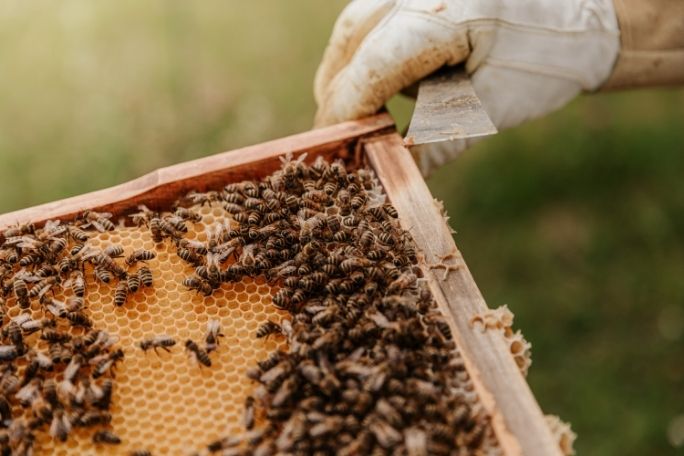Lesson summary
In this lesson, students will be introduced to food security in Australia and globally. A class discussion is used to identify key aspects of food security before students work in groups to critically analyse a range of clips about food production and food security. Groups then move between stations around the classroom contributing answers to a range of questions related to what they have seen. During student-led class discussions at each station the class completes mind maps to summarise their learning. Finally, students connect food security to the produce on their plates by create a supermarket cheat sheet that can be used by their families to make more informed food choices.
Learning intentions:
Students will...
- know the key features of food security in Australia
- understand a range of challenges to improving food security with a focus on food production
Success criteria:
Students can...
- explain the meaning of food security and apply it to Australia
- describe some challenges to improving food security through increased food production
- explain the role of pollinators in food production
- explain connections between bees, food production and food security
Lesson guides and printables
Lesson details
Curriculum mapping
Australian curriculum content descriptions:
Year 9 Geography:
- The capacity of the world’s environments to sustainably feed the projected future global population (ACHGK064).
- Human alteration of biomes to produce food, industrial materials and fibres, and the use of systems thinking to analyse the environmental effects of these alterations (ACHGK061).
- Challenges to food production, including land and water degradation, shortage of fresh water, competing land uses, and climate change, for Australia and other areas of the world (ACHGK063).
Year 10 Geography:
- Human-induced environmental changes that challenge sustainability (ACHGK070).
- The application of geographical concepts and methods to the management of the environmental change being investigated (ACHGK074).
Syllabus outcomes: GE5-2, GE5-3, GE5-4, GE5-5.
General capabilities: Information and Communication Technology (ICT) Capability, Literacy, Critical and Creative Thinking, Ethical Understanding.
Cross-curriculum priority: Sustainability.
Relevant parts of Year 9 achievement standards: Students analyse interconnections between people, places and environments and explain how these interconnections influence people, and change places and environments. They predict changes in the characteristics of places over time and identify the possible implications of change for the future. Students analyse alternative strategies to a geographical challenge using environmental, social and economic criteria. Students synthesise data and information to draw reasoned conclusions.
Relevant parts of Year 10 achievement standards: Students explain how interactions between geographical processes at different scales change the characteristics of places. Students identify, analyse and explain significant interconnections between people, places and environments and explain changes that result from these interconnections and their consequences. Students use initial research to develop and modify geographically significant questions to frame an inquiry. They critically evaluate a range of primary and secondary sources to select and collect relevant, reliable and unbiased geographical information and data.
Unit of work: Love Food? Love Bees! – Food Security and Sustainability – Year 9 & 10
Time required: 90 mins.
Level of teacher scaffolding: Medium – the teacher will need to create learning stations prior to class and facilitates class discussions and group work.
Resources required
- Six internet-enabled devices capable of playing online clips
- Six large sheets of butchers paper or whiteboards and markers
- A piece of string or masking tape at least five meters long
- Three pieces of A4 paper
- Student Worksheets – one copy per student
- One copy of the Food Security Stations Worksheets (cut along the dotted lines)
Skills
This lesson is designed to build students’ competencies in the following skills:
- Collaboration
- Creativity
- Critical thinking
- Digital literacy
- Leadership
- Problem solving
- Social skills
Additional info
This lesson has been created in partnership with ACT for Bees. ACT for Bees is a not-for-profit organisation taking action to preserve these essential pollinators, ensuring a food-secure future.


Welcome back!
Don't have an account yet?
Log in with:
By signing up to Cool.org you consent and agree to Cool's privacy policy to
store, manage and process your personal information. To read more, please see
our privacy policy here(Opens in new tab).
Create your free Cool.org account.
Many of our resources are free, with an option to upgrade to Cool+ for premium content.
Already have an account?
Sign up with:
By signing up to Cool.org you consent and agree to Cool's privacy policy to
store, manage and process your personal information. To read more, please see
our privacy policy here(Opens in new tab).